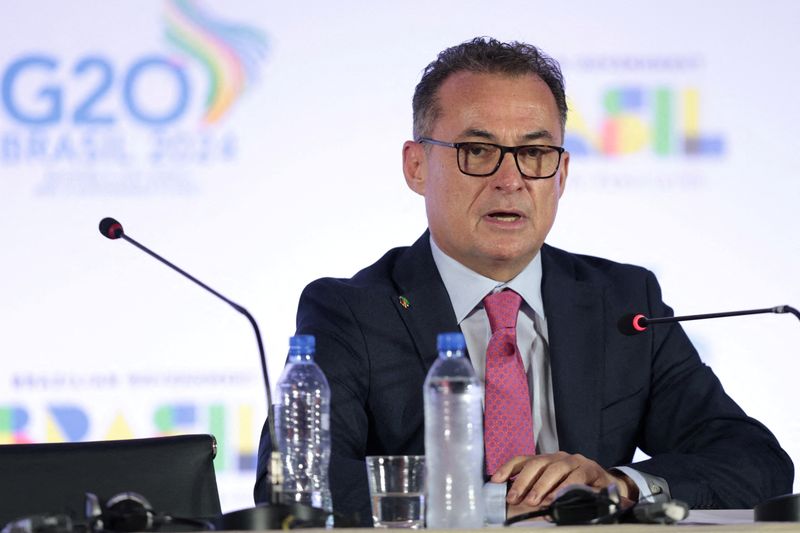Authors: Friederike Heine and Balazs Koranyi
FRANKFURT/BERLIN (Reuters) – The Bundesbank said on Friday that upward pressure on wages meant inflation was stubbornly stubborn, a day after the European Central Bank announced its first interest rate cut since 2019.
The warning from Europe’s largest economy is likely to reinforce expectations that interest rates will only fall slowly. Inflation has fallen from double digits in late 2022, but the “last mile” is proving tricky, both in the eurozone and in the United States.
“Inflation is proving stubborn, especially in the services sector, where strong wage growth and resulting cost pressures are the main factors,” the Bundesbank said in its twice-yearly update of its economic forecasts.
“Negotiated wages are expected to rise significantly this year,” it added.
The bank now expects German inflation to be 2.8% this year, up from the 2.7% forecast six months ago, with growth at just 0.3%, down from the 0.4% forecast in December.
“While inflation continues to fall in Germany, the pace is slowing,” Bundesbank President Joachim Nagel said. “When it comes to cutting interest rates, we on the ECB Governing Council are not on autopilot.”
European Central Bank policymakers this week received an upward revision of euro zone inflation forecasts, which are now expected to remain above the bank’s 2% target until the end of next year.
Slow recovery
Germany’s economy was the weakest among the euro zone’s major economies last year as high energy costs, weak global orders and record high interest rates took their toll.
However, German Economy Minister Robert Habeck struck a more optimistic note on Friday, saying that “if all goes well” economic growth could be as high as 1.5% in 2025.
Speaking at a family business event, Harbeck said the economic problems of the past two years – sharp rises in energy prices and high inflation due to the war in Ukraine – had been “under control”, which would pave the way for future growth. path to maturity.
Meanwhile, new data on German industrial production and trade for April presented a mixed picture.
Exports in April increased by 1.6% from the previous quarter, but industrial production fell by 0.1% from the previous quarter, indicating a weak economic recovery. The trade surplus remained almost unchanged at 22.1 billion euros ($24.07 billion).
Thomas Gitzel, chief economist at VP Bank, said the data “raised concerns that overall economic growth will be weak in the second quarter.” “Improving industrial output first requires strong growth in new orders.”
Data earlier this week showed that industrial orders also unexpectedly fell in April, the fourth straight monthly decline, as the number of large orders fell significantly.

Carsten Brzeski, global head of macro at ING, said: “Yesterday’s decline in new orders and the fact that inventories remain high suggest that any rebound in industrial activity will remain modest.”
(1 USD = 0.9181 Euro)

